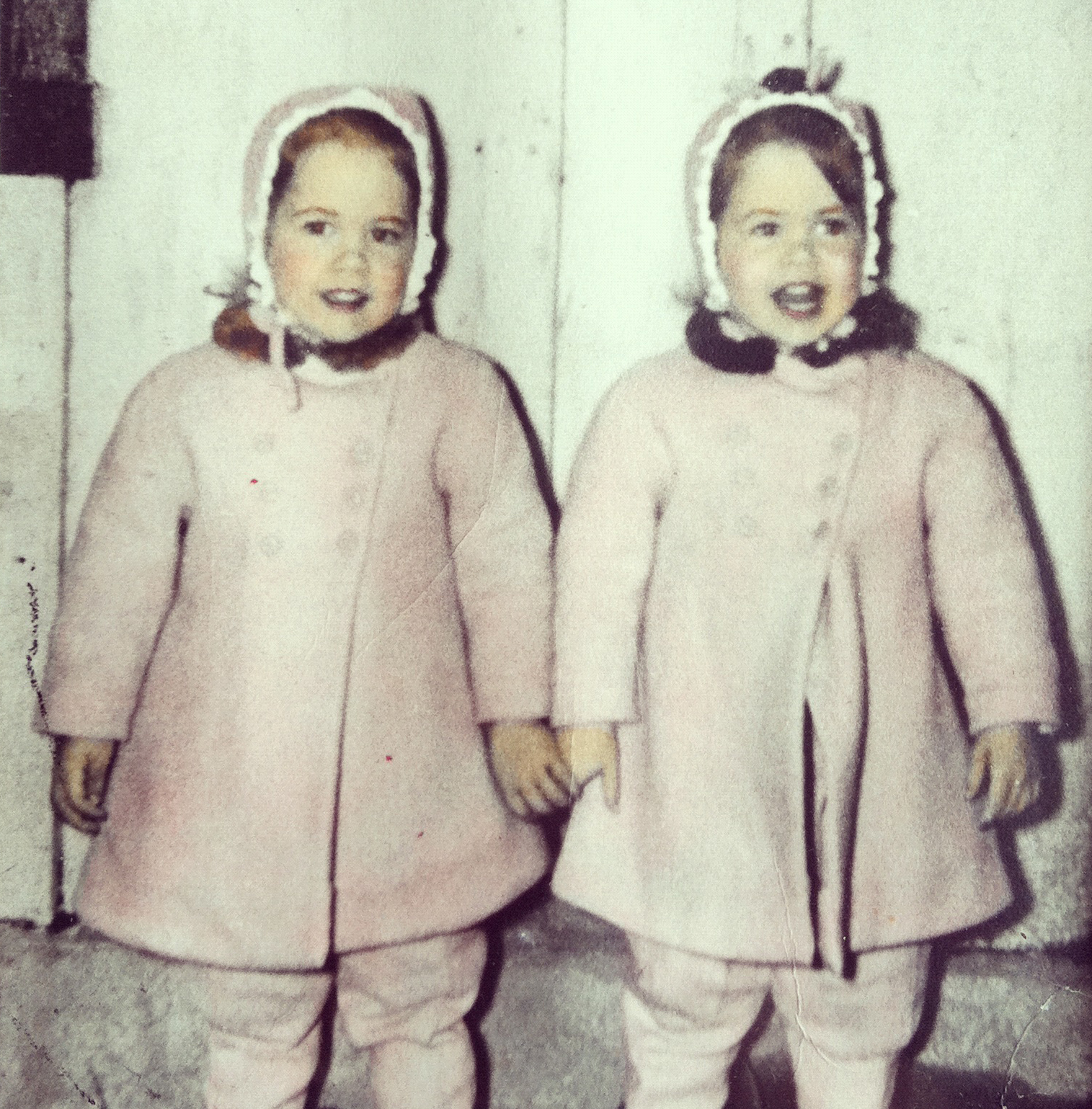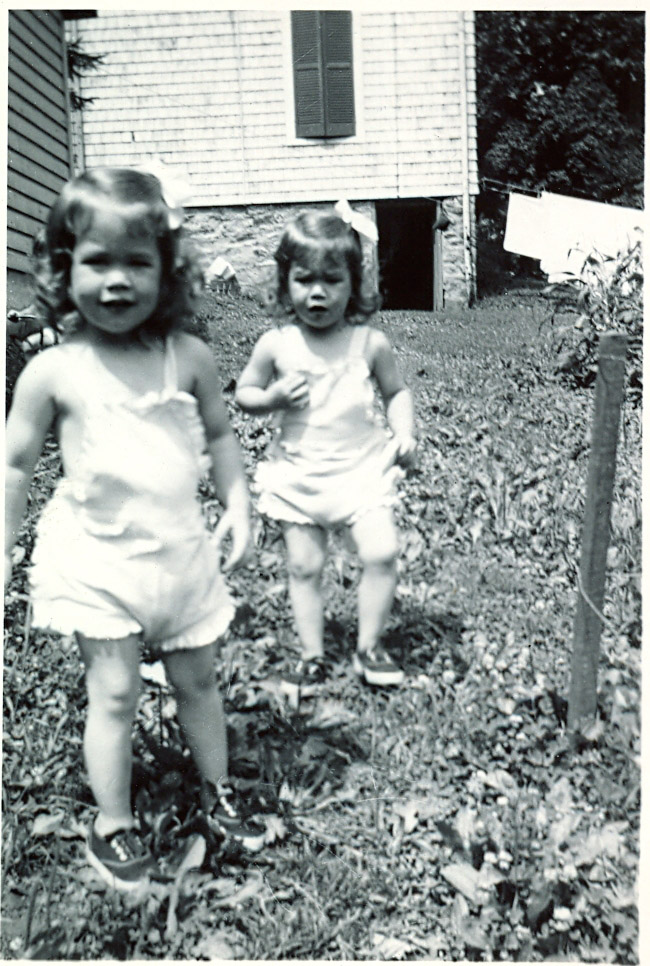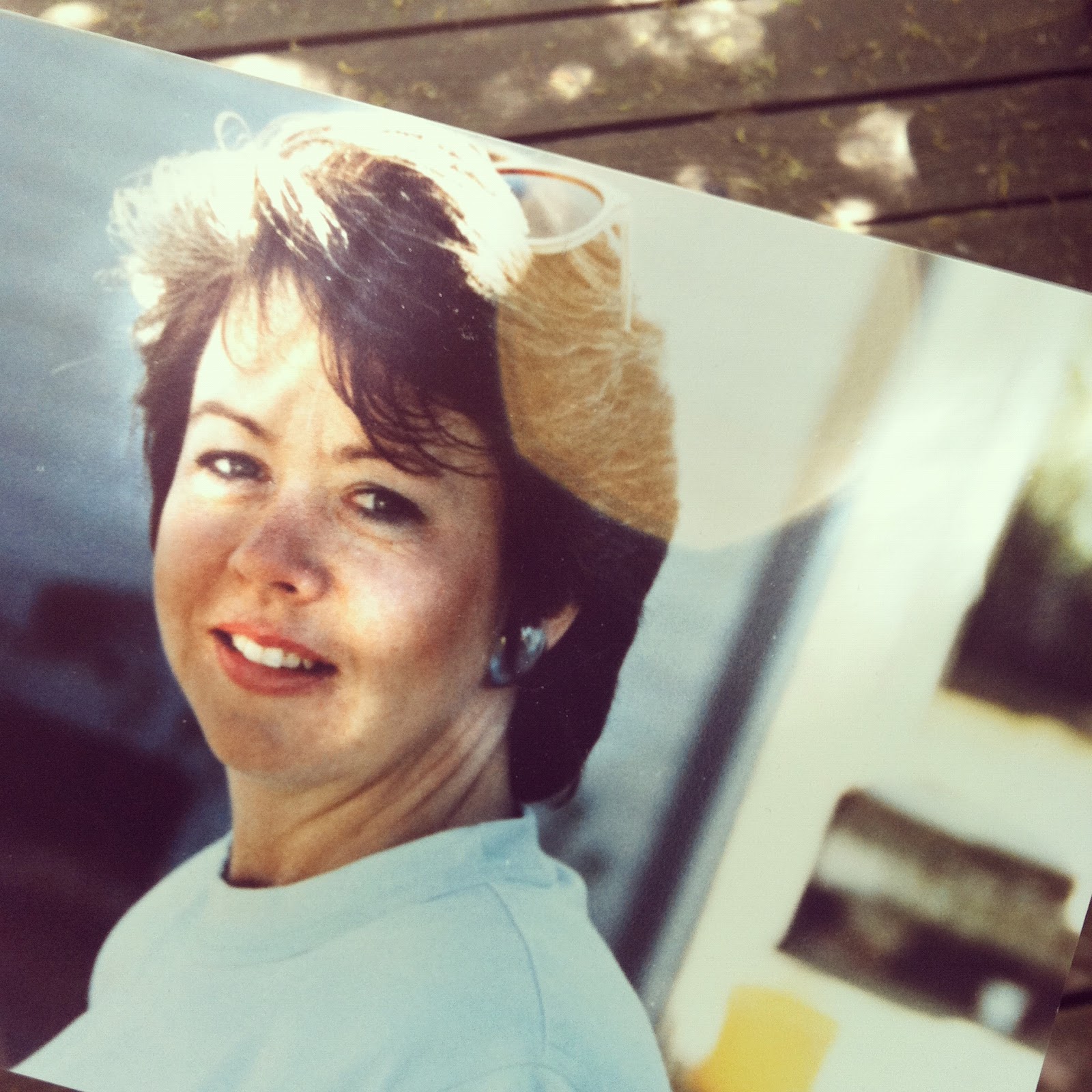Tag: loss
She felt like cheering
I have three half-siblings. I know I’ve told you that before, probably lots of times. My half-siblings are a decent bit older than me, so growing up, they often seemed more like uncles and an aunt. I was an only child, mostly. But my mother came from a big family, and she had an identical twin sister named Tina. Though Tina lived in California and we lived in Oklahoma, she and my mother did their best to make sure that their children, my cousins Sarah and Katie and I, would feel close as we grew up. I fell in love with the West Coast – and, I’m sure, wound up living here – because of trips we took to visit Tina and her family when I was a kid.
In the mornings, when it’s still cool outside, Tina’s neighborhood smells like eucalyptus. In the afternoons, Katie and I would walk through the backyard to old convenience store across the street, where we would buy beef jerky from a plastic tub. There’s now a fancy grocery store where the convenience store used to be, but a little further down the street is a mall that still looks pretty much the same, a outdoor mall, something we didn’t have in Oklahoma. It was at that mall that Sarah and I, then pre-teens, went on my first and only shoplifting spree. We got a paper shopping bag at a department store, put my denim jacket in it, and then proceeded to hit a few other stores, hiding our loot under the jacket. Our primary target was a Hallmark shop, where I scored a few calligraphy pens and a tiny carpenter’s bubble level on a keychain, the kind with yellow liquid in a clear tube. I had no idea what a level was, but it looked awesome, and I was too scared of being caught to spend a lot of time puzzling over it before I shoved it into the bag. Our mothers didn’t catch us, but back at Tina’s house, with our booty stashed safely in the closet, I was still terrified. I was not cut out for a life in crime. I don’t know if Tina ever found out about what we did, but I remember that closet so clearly. I remember her house so clearly, the way it smells, the way it slopes slightly toward the street, so that every door needs a doorstop. When I’m falling asleep, I sometimes picture myself there.
That’s my mother on the left in both of the pictures, and Tina on the right. They didn’t always dress alike, but they weren’t opposed to it. Actually, the older they got, the more often they did. They even wore their hair the same way: a couple of inches below the shoulder, usually pulled back into a ponytail. There’s a set of elderly twins who are famous around San Francisco, Marian and Vivian Brown, and we ran into them once in Union Square, both impeccably dressed. My twins are not the type to pencil in their eyebrows or go for animal-skin cowboy hats, but I always pictured them getting old together the way the Brown twins have, making a scene, making trouble.
In early February, Tina was diagnosed suddenly with pancreatic cancer. She went to my mother’s house in Oklahoma to stay for a while and receive treatment. My cousins and I took turns flying in to help, and we tried our best not to spend too much time Googling pancreatic cancer, because that kind of thing will scare the crap out of you. But it was hard to ignore the fact that, as all the literature says, the illness moves quickly. Tina passed away at home, my mother’s home, on May 29, with five of us around her.
The Internet is an awkward place to write about death. It doesn’t have the right weight. I don’t like it. But I’ve been trying to figure out what to write here instead, and nothing else came. Over the past few months, whenever I’ve told someone about Tina, it’s been hard to explain why it should feel so difficult to lose an aunt, as opposed to, say, a parent. For me, Tina was somewhere between the two. In high school biology, when I learned about genes and DNA, I remember being thrilled by the thought that my mother and Tina had identical DNA, and that, maybe, on some level that an actual scientist would probably scoff at, it meant that Katie and Sarah were my half-sisters. I loved that idea. Maybe, on that same questionable level, it meant that Tina was more than my aunt.
She was the only person in the world who called me Margaret, my legal name. She sort of sang it, actually, Maaaaar-GRIT, her voice rising as she went. When I was in college, I lived with her during the summers. She introduced me to Dungeness crab and to the giant chocolate-covered coconut macaroons at Max’s. She was the first person I knew who really loved the place where she lived. It doesn’t sound like much to say, but it had never occurred to me that a person could fall in love with a city and actually get to live there, not just visit. I didn’t dislike Oklahoma City, but I didn’t love it, and my parents didn’t, either. I didn’t know what it might be like to feel another way. But Tina and I were once driving across the Golden Gate Bridge, and I remember her saying that she never got tired of it, of that drive, even after forty years in the Bay Area, and that she each time she crossed the bridge, she felt like cheering, I LIVE HERE! I didn’t know then that Seattle would make me feel that way, that it would be my place. But now, whenever I catch myself silently cheering, I think of her.
I also think of Tina when I cook in my cast-iron skillets, because the summer that I was twenty and living at her house, I once used a cast-iron skillet and then left it overnight, rinsed but still dirty, in her white kitchen sink. The next morning, when she found it there, she also found beneath it a dark, angry ring of rust that hung on for months. I am now a champ at the prompt cleaning and drying of cast-iron skillets.
I don’t know who took this picture, but I found it on Tina’s desk last weekend. It must have been taken in the 80s, because this was her hairstyle then. I love the lens flare, how relaxed she looks, how pretty she was. She looked very different when I last saw her, but she was still beautiful.
About a month ago, when the author Maurice Sendak died, NPR re-released a number of interviews that he did over the years with Terry Gross of Fresh Air. I listened to all of them, and I listened twice to the last one. (It starts about 27 minutes in.) I hope I can someday feel the way he did about aging and dying. I’ve known so many people who, like Tina, didn’t really get a chance to get old. There was something he said that I keep thinking about: “I don’t believe in an afterlife, but I still fully expect to see my brother again.” Most days, I don’t believe in an afterlife, either, but I hope for my mother, and for all of us, that Mr. Sendak was right.




